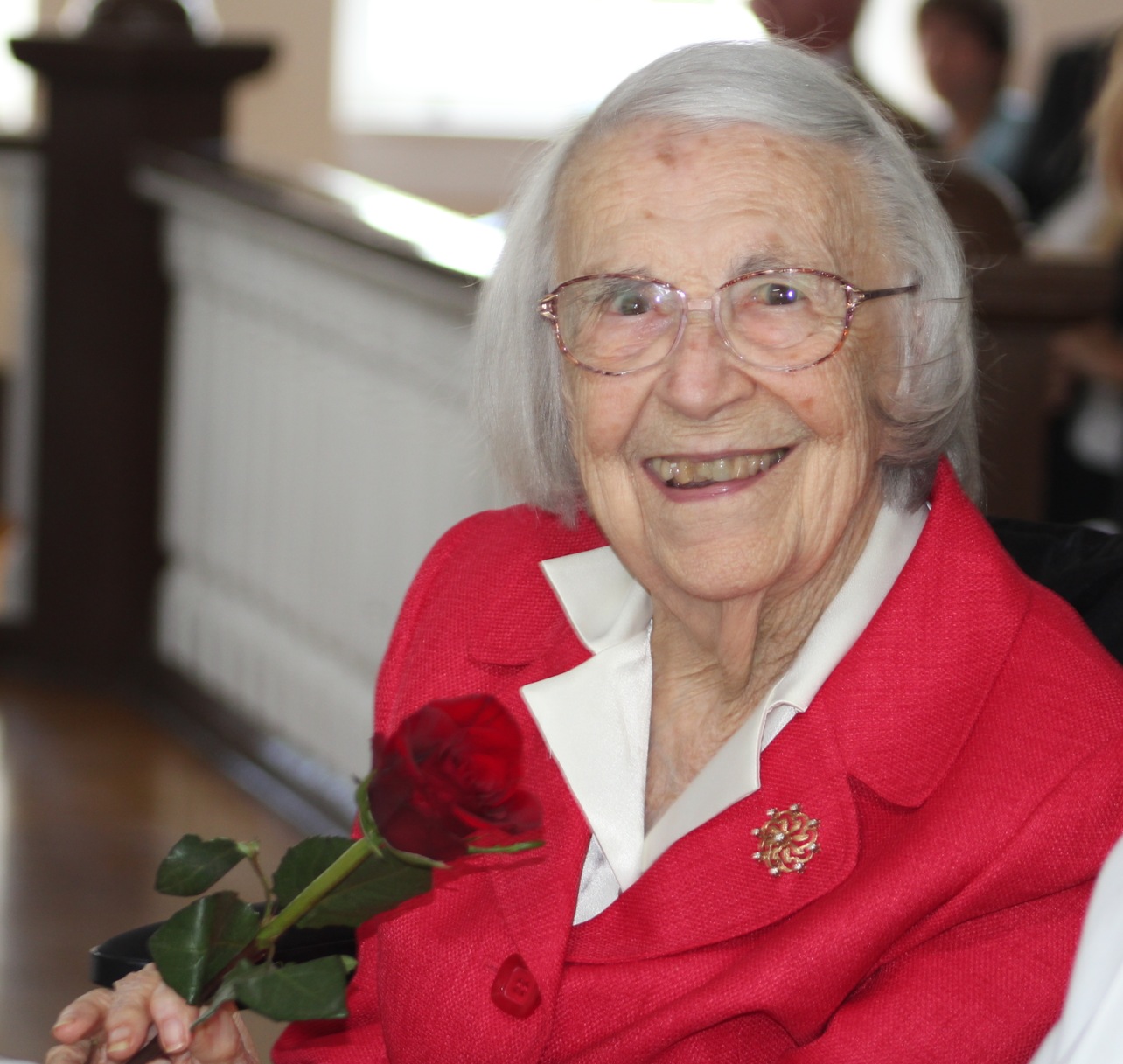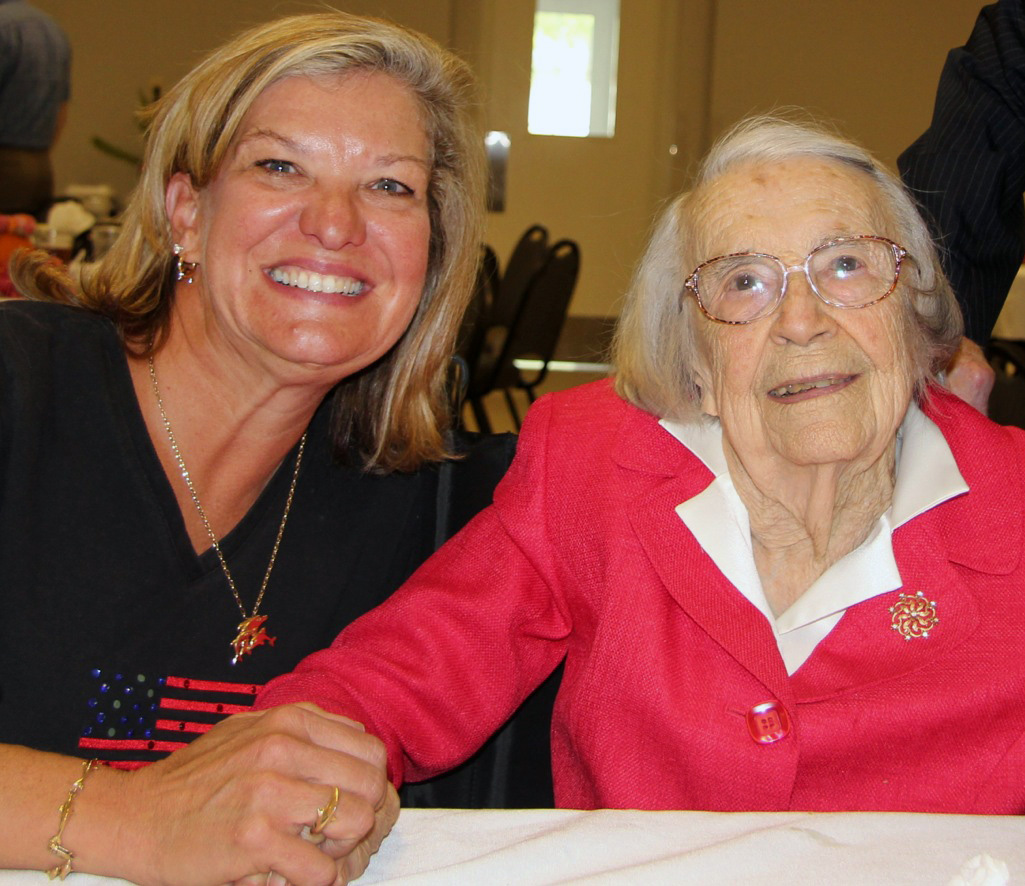Alice Finch Lee may be a footnote in literary history as the older sister of Harper Lee, author of “To Kill a Mockingbird.”
But in United Methodist circles, she’s being remembered as an exemplary laywoman whose service and wise counsel stretched across decades, and could be felt at the local church, conference and general church levels.
“She really was a pillar of leadership,” said Dawn Wiggins Hare, a close friend of Lee’s, fellow resident of Monroeville, Ala., and top executive of the United Methodist Commission on the Status and Role of Women.
Lee, 103, died Monday in Monroeville. Funeral arrangements are pending, said the Rev. Francis Turner III, pastor of First United Methodist Church in Monroeville.
Survivors include her sister Harper, 88, who lives in a Monroeville assisted living home.
Harper Lee dedicated “To Kill a Mockingbird,” a 1961 Pulitzer Prize-winner and one of the best-selling novels of all-time, to Alice Lee and to their father.

Alice Finch Lee celebrated her 100th birthday three years ago at First United Methodist Church in Monroeville, Ala. 2011 file photo by Marianne Lee, a family member.
The novel’s hero, a lawyer who risks his life to defend a black man falsely accused of rape in Depression-era Alabama, is named Atticus Finch.
Alice Finch Lee was a female legal pioneer in south Alabama, practicing law in Monroeville from 1944 until she was nearly 100, and earning a reputation for unassailable integrity.
“She is Atticus in a skirt,” said the Rev. Thomas Butts, pastor emeritus of First United Methodist Church in Monroeville, in introducing her for an award given her by the Alabama Bar Association in 2003.
Reached by phone Tuesday, Butts said Lee’s death would leave a void in Monroeville, First United Methodist Church of Monroeville and in The United Methodist Church.
Butts said Lee was asked once what positions she’d held in her local church.
“She thought for a minute and said, ‘I’ve never been pastor,’ which meant she’d done everything else,” he said.
For many years, she taught an adult men’s Sunday school class at First United Methodist in Monroeville.
“They respected her teaching,” Hare said.
During the 1960s struggle over integration, Lee left a standing order with ushers in her church that any African-American seeking admission should be seated by her.
She also, as an Alabama-West Florida Annual Conference voter, used a parliamentary maneuver to thwart efforts to block a committee report calling for acknowledgment of racial divisions.
Lee served as a Jurisdictional and General Conference delegate, and in 1976 became the first (and still only) woman to lead the Alabama-West Florida Conference delegation to General Conference.
She served eight years on the Southeastern Jurisdiction’s episcopacy committee, helping to make bishop assignments. She was a member of the General Council on Ministries for eight years, serving as treasurer and on the executive committee.
When Hare was a General Conference delegate in 2008 and in 2012, she would send emails to Lee, providing updates and asking advice about tough votes.
“I felt like I had a little angel on my shoulder,” Hare said. “Her insight was absolutely invaluable because her motives were always true.”
Lee championed the role of women in church work, and the Alabama-West Florida Conference gives an Alice Lee Award to outstanding women church leaders.
Hare recalled Lee’s keen interest in missions, particularly United Methodist orphanages, and noted that she quietly provided financial support beyond giving to her church.
“She gave to ministers whose churches could not come up with their salaries,” Hare said. “When the bishop had projects, she would raise money for them.”
Lee was a voracious reader of newspapers and books, and a local historian so renowned that “Go ask Alice” became a de facto command for anyone with a question about the area’s past.
She wore smart-looking business suits with tennis shoes.
“The footprints of those tennis shoes are all over this community and the church,” Hare said.
Hodges, a United Methodist News Service writer, lives in Dallas. Contact him at (615) 742-5470 or newsdesk@umcom.org
Like what you're reading? Support the ministry of UM News! Your support ensures the latest denominational news, dynamic stories and informative articles will continue to connect our global community. Make a tax-deductible donation at ResourceUMC.org/GiveUMCom.




